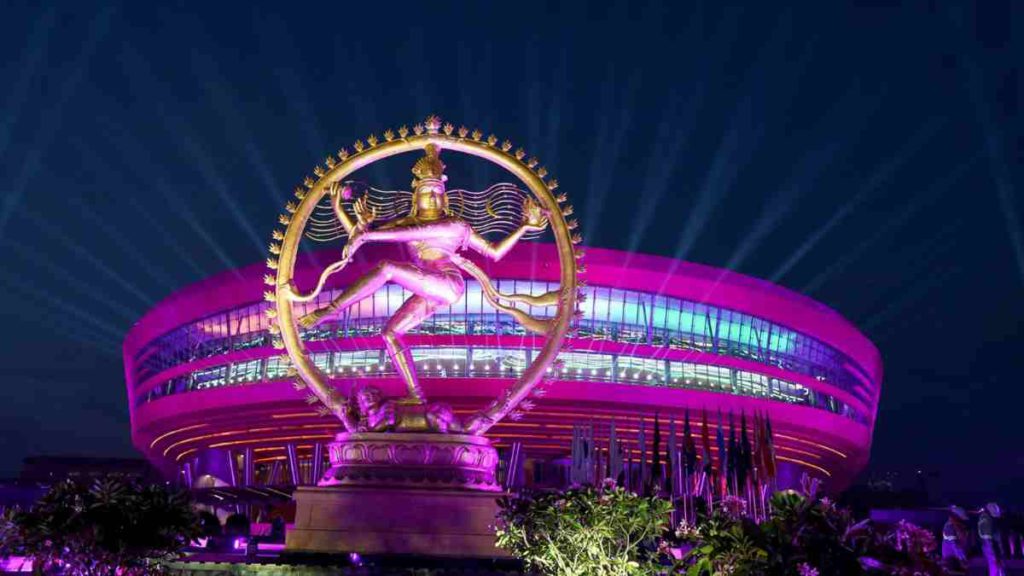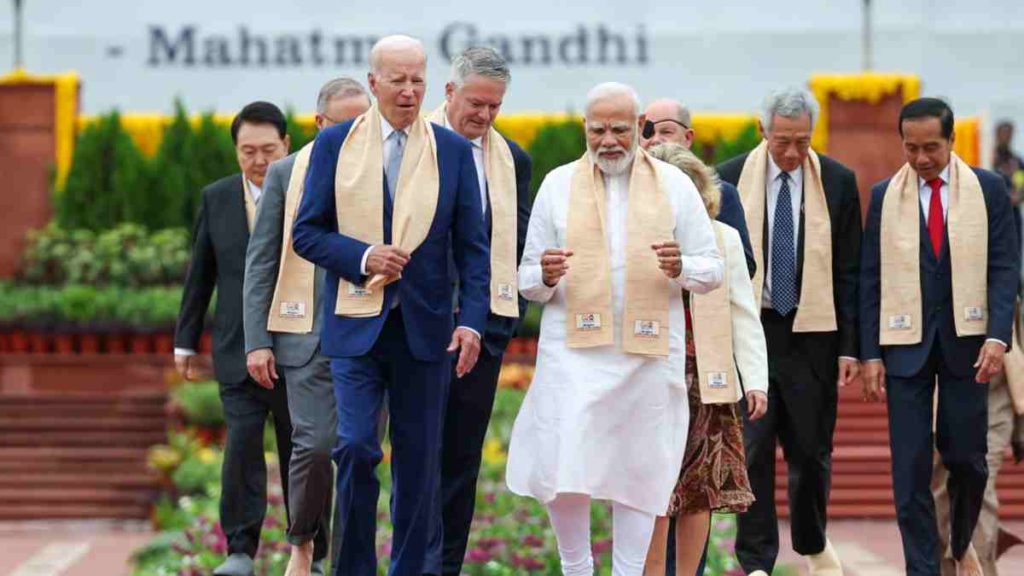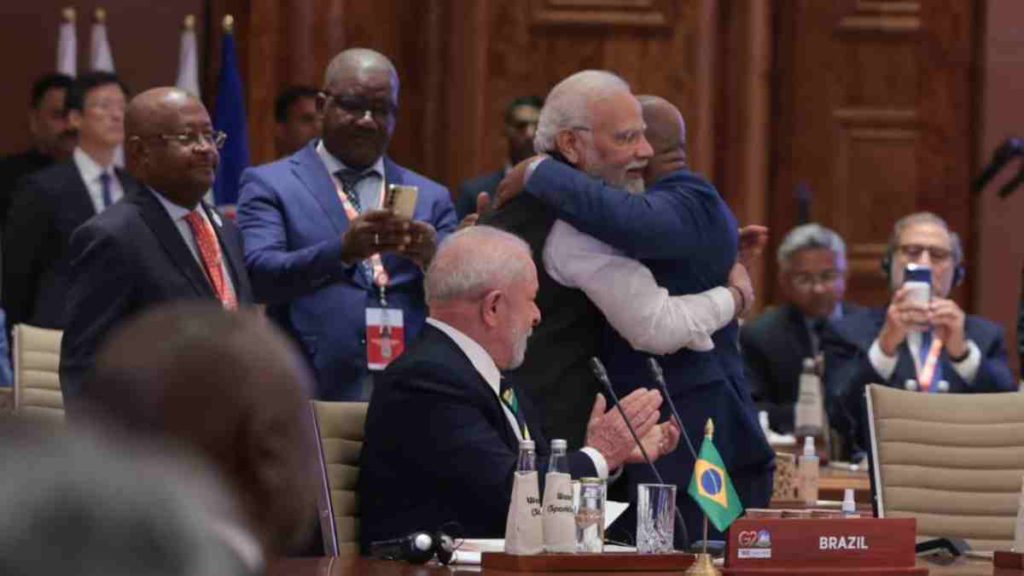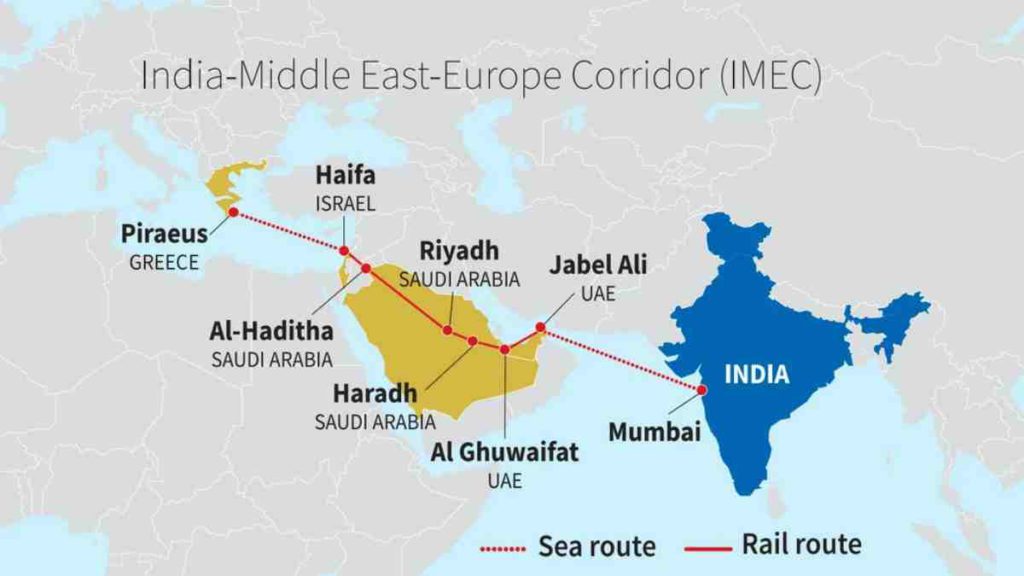INDIA. Delhi: In a grand display of diplomatic prowess and organizational excellence, India recently played host to the 2023 G20 Summit. The event was held against the backdrop of a global pandemic, economic uncertainties, and geopolitical tensions.
India’s successful hosting of the summit not only showcased the country’s rising prominence on the world stage but also highlighted its commitment to fostering international cooperation and addressing global challenges.
The 18th G20 Summit recently concluded in New Delhi, marking a historic moment as the country hosted its inaugural G20 summit.
The summit’s theme, “Vasudhaiva Kutumbakam,” which means “One Earth, One Family, One Future” originated from ancient Sanskrit texts, reflects a commitment to sustainable development.

India demonstrated its diplomatic prowess by swiftly achieving consensus on the New Delhi Leaders’ Declaration (NDLD) at the onset of the G20 Summit. This consensus-building process involved softening the stances of the United States and the European Union towards Russia.
The summit also placed significant emphasis on key priorities such as UN Sustainable Development Goals, climate action, green development initiatives, multilateral financing, digital public infrastructure (DPI), artificial intelligence (AI), and international taxation, among other critical issues.
Setting the stage
The G20, or Group of Twenty, is a forum of the world’s major economies, representing approximately 85% of the global GDP and two-thirds of the world’s population.
This summit serves as a platform for leaders to come together, discuss pressing issues, and collaborate on solutions. Given the magnitude of the challenges facing the world today, the 2023 G20 Summit was highly anticipated.
Diplomatic triumph
India’s hosting of the G20 Summit was nothing short of a diplomatic triumph. The preparations began well in advance, showcasing India’s dedication to making the event a success. Prime Minister Narendra Modi’s leadership was evident as he engaged with world leaders to build consensus on key issues and set the agenda for the summit.

The summit was held in New Delhi, India’s capital, a city that combines rich historical and cultural heritage with modern infrastructure. The choice of venue underscored India’s ability to blend tradition and progress seamlessly.
It provided world leaders with a unique backdrop for their discussions, fostering an atmosphere conducive to productive dialogue.
Let’s look at the key issues that separate this G20 summit from previous summits.
G20 New Delhi Leaders’ Declaration (NDLD)
The 2023 G20 NDLD achieved an exceptional unanimous approval with all 83 paragraphs garnering consensus, a remarkable 100 per cent agreement that even included China and Russia. Notably, this historic declaration was distinct for its absence of footnotes or Chair’s Summary or any dissent.
Among these 83 paragraphs, numerous agreements related to the Finance Track were incorporated. Additionally, it contained 8 paragraphs dedicated to addressing the Ukraine conflict and its economic repercussions.
Finance Minister Nirmala Sitharaman emphasized the accomplishments of the Indian G20 Presidency, highlighting a concrete strategy to strengthen multilateral development banks, establish clear regulations for cryptocurrencies, and implement DPI to enhance financial inclusion. She also stressed the significance of expediting a debt relief plan for vulnerable nations.
Regarding climate change, the declaration underscored the urgency of mobilizing “US$5.8-5.9 trillion in the pre-2030 period for developing countries” and “US$4 trillion per year for clean energy technologies by 2030” to achieve net-zero emissions by 2050. It called for a substantial increase in climate funding, transitioning from billions to trillions of dollars.
Inclusion of African Union in G20
One of the monumental achievements of India’s presidency of G20 is the African Union’s admission to the G20 group. This inclusion marked a significant development as only South Africa was previously the sole African representative in the group.

This decision was made during the G20 summit in Delhi and granted the African Union, representing 55 African countries, full membership status, similar to the representation of the European Union.
India has strategically positioned itself as a champion for the interests of developing and underdeveloped nations, aiming to harmonize this stance with its aspirations for a permanent seat on the United Nations Security Council (UNSC). To further this goal, New Delhi is actively seeking support from the African continent, which holds 55 critical votes within the UNSC.
In a show of inclusivity, India extended invitations to Nigeria, Egypt, and Mauritius as ‘Guest Countries’ to participate in the G20 summit.
India – Middle East – Europe Economic Corridor (IMEC)
In another pathbreaking initiative, a Memorandum of Understanding (MoU) was officially inked among the governments of India, the United States, Saudi Arabia, the European Union, the United Arab Emirates, France, Germany, and Italy.
The purpose of this agreement is to pave the way for the establishment of the India – Middle East – Europe Economic Corridor, abbreviated as IMEC.
IMEC is envisioned as a comprehensive network of transportation routes, encompassing both railways and sea lanes, with its primary goal being to facilitate economic growth by fostering greater integration between Asia, the Arabian Gulf, and Europe.

It excludes Afghanistan, Pakistan and Turkey for obvious reasons.
While specific project details have yet to be fully outlined, it’s important to note that this initiative falls under the umbrella of the Partnership for Global Infrastructure Investment (PGII).
The PGII is an initiative led by Western nations that seeks to provide support and secure funding for vital infrastructure projects worldwide.
These projects include the development of roads, ports, bridges, and communication systems, all aimed at bolstering global trade and fostering international cooperation.
Although no leaders explicitly mentioned China, it is evident that the IMEC corridor aspires to emerge as a viable alternative to China’s Belt and Road Initiative (BRI).
The BRI, which has been in operation for a decade, has steadily established global connectivity links with the Chinese market through an extensive network of shipping routes, railways, and roads.
Climate action plan
Leaders attending the G20 Summit failed to come to a consensus regarding the necessity of phasing out fossil fuels, despite a United Nations report deeming such a phase-out as “essential” for attaining net-zero emissions.
The G20 countries, which collectively account for roughly 80 per cent of worldwide emissions, could not reach an agreement on this pivotal matter.
This lack of consensus raises concerns as it looms over forthcoming climate talks scheduled for November in the oil-rich United Arab Emirates.
However, the G20 did approve a target to triple global renewable energy capacity and stressed the urgency of reaching peak emissions before 2025. Furthermore, the Declaration recognized that to limit global warming to 1.5 degrees Celsius (2.7 degrees Fahrenheit), a 43 per cent reduction in greenhouse gases by 2030 compared to 2019 levels is essential.
The G20 New Delhi Leaders’ Declaration also included commitments to mainstream the Lifestyle for Environment (LiFE), implement sustainable energy transitions, provide sustainable finance, reaffirm their commitment to the pursuit of Sustainable Development Goals (SDGs), tackle plastic pollution, safeguard the ocean-based economy, and more.
Additionally, the summit marked the launch of the Global Biofuel Alliance (GBA), a new organization dedicated to promoting sustainable biofuels’ development and adoption, as well as the establishment of relevant standards and certification processes.
India’s hosting of the 2023 G20 Summit was a resounding success on multiple fronts. It demonstrated India’s capacity to organize large-scale international events with precision and efficiency, solidified its position as a prominent global leader, and allowed the country to showcase its commitment to addressing pressing global challenges.
As the world continues to grapple with complex issues, India’s role in fostering international cooperation and diplomacy has never been more crucial. The successful hosting of the G-20 Summit serves as a testament to India’s diplomatic prowess and its dedication to shaping a better world for all.
Also Read: African Union Welcomed as Permanent G20 Member as Summit Kicks Off in New Delhi

